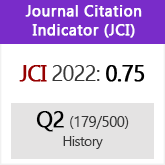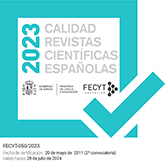La reglamentación de la prostitución en la Barcelona de la Restauración (1870-1890)
DOI:
https://doi.org/10.3989/hispania.2004.v64.i218.172Keywords:
Prostitution, Regulation, The nineteenth century, Barcelona, Carlos RonquilloAbstract
«Hygienism» was a medical doctrine which incorporated the social features that were directly related to disease into its treatment. One of the fields where hygienic doctrine had most influence was on the exercise of prostitution. This was because the study of the causes that originated prostitution and the series of moral prophylactic measures that were introduced to halt prostitution were both added to medical practice. It was through these methods that the medical profession tried to control and shape social behaviour and to prevent the effects of contagious venereal and syphilitic diseases. These elements were reflected in the regulation of prostitution that was adopted in the most important cities in Spain from the middle of the nineteenth century onwards. In this legislation the creation of Sections of special hygiene was included. These were designed to record, prevent and control the exercise of prostitution, as well as all the illnesses derived from it. In the city of Barcelona, during the Restauration, the Section of special hygiene under Carlos Ronquillo´s government focused particularly on the treatment of prostitution as a social disease and on the female prostitute as a victim of the precarious social and labour circumstances of the working class in the late nineteenth-century industrial city.
Downloads
Download data is not yet available.
Downloads
Published
2004-12-30
How to Cite
Alcaide González, R. (2004). La reglamentación de la prostitución en la Barcelona de la Restauración (1870-1890). Hispania, 64(218), 897–921. https://doi.org/10.3989/hispania.2004.v64.i218.172
Issue
Section
Monographies
License
Copyright (c) 2004 Consejo Superior de Investigaciones Científicas (CSIC)

This work is licensed under a Creative Commons Attribution 4.0 International License.
© CSIC. Manuscripts published in both the printed and online versions of this Journal are the property of Consejo Superior de Investigaciones Científicas, and quoting this source is a requirement for any partial or full reproduction.All contents of this electronic edition, except where otherwise noted, are distributed under a “Creative Commons Attribution 4.0 International” (CC BY 4.0) License. You may read here the basic information and the legal text of the license. The indication of the CC BY 4.0 License must be expressly stated in this way when necessary.
Self-archiving in repositories, personal webpages or similar, of any version other than the published by the Editor, is not allowed.














